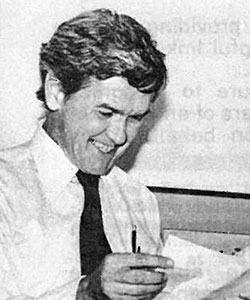My mother introduced me to Sally.
And it didn’t take me long to realize that my mom's assessment was correct: Sally is undeniably amazing.
👉 Successful business.
👉 Wonderful family.
👉 A personality that draws people to her.
👉 A way about her that makes you feel important when you talk with her.
Turns out, she’s also quite comfortable revealing her secret for a successful, balanced life.
Which I didn’t know until I asked. "What's your secret?"
“Scott," she said, "I do an interview every Thanksgiving. And that
sets me up for the year.”
“Who do you interview?”
“Me. And I always ask pretty much the same questions. And I revisit that
interview throughout the year. Try it. I’ll email you the questions.”
Here’s what she sent (with her permission to share).
My Annual Self-Interview
Here’s how it works: Every Thanksgiving, I set aside time to
answer these questions thoughtfully and honestly. It’s my way of checking in
with myself, clearing out the mental clutter, and focusing on what truly
matters.
1. What do I truly want in life?
Getting real about your deepest desires sets the tone for everything else.
2. What do I want to achieve this year?
Big dreams are great, but this is about zooming in on this year’s priorities.
3. What habits are not serving me?
Growth starts with letting go of what holds you back.
4. How have I changed over the last year? How would I like to change over the next year?
Reflection fuels growth. Look back, then imagine what’s next.
5. What regrets would I like to avoid this year?
Proactive thinking can help you sidestep decisions you’ll wish you hadn’t made.
6. What 3 goals are most important for me to accomplish in the coming year?
Focusing on just three keeps things manageable—and effective.
7. What emotional baggage am I carrying that I need to release?
Holding onto emotional weight? It’s time to unpack it.
8. What have I avoided dealing with last year and how can I begin to address it?
Confronting the tough stuff might just be your breakthrough moment.
9. What are all the things I’m grateful for?
Gratitude fuels positivity.
10. What are specific ways that I can better take care of myself?
Self-care isn’t optional; it’s essential.
11. What does success look like to me? What does success mean?
Define it for yourself, not based on others’ expectations.
12. What things would I like to improve about myself? In what ways would I like to grow as a person?
Life’s about constant growth, right?
13. How can I better take care of my mental health?
A reminder to prioritize your inner well-being.
14. What doubts, barriers, and/or fears have held me back, and how can I address them?
Facing fears head-on is how Sally stays unstoppable.
No wonder Sally always seems so grounded, so purposeful. She’s not leaving her life to chance. She’s creating her roadmap every year—and sticking to it.
If you decide to follow Sally’s self-interview, and take it
seriously, it’s easier said than done. It’s deeply personal … like having a
conversation with someone you can’t BS: your future self. And your future self
is demanding that you clear the clutter and be accountable.
HINT: It helps to remind yourself that it’s not about perfection; it’s about progress.
So, what do you think? Are you going to try Sally’s questions?
If so, set aside some quiet time, grab a journal, and go for it. You might be surprised at what you discover.







